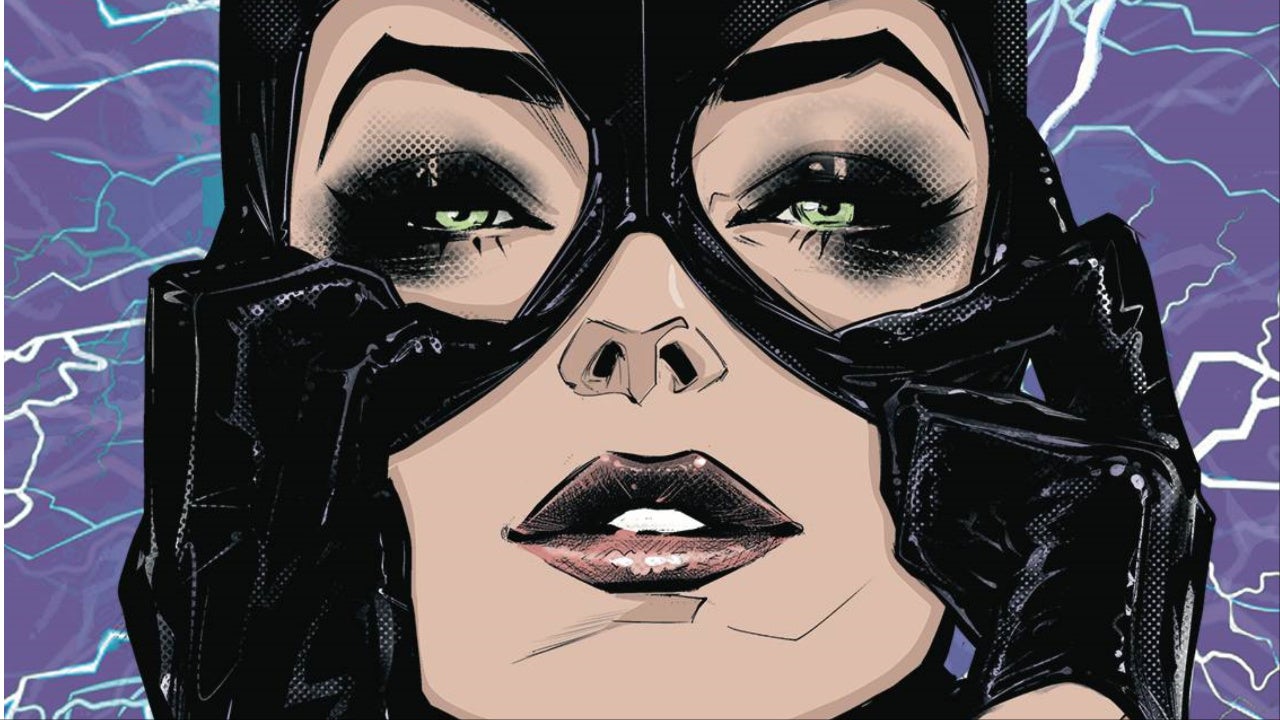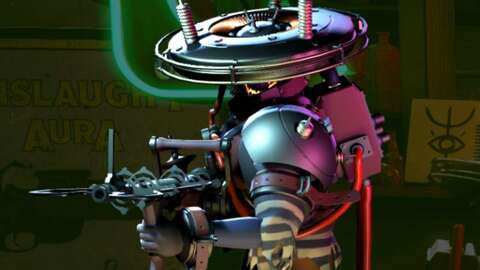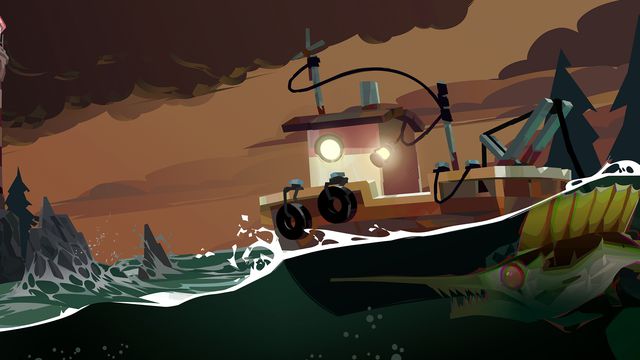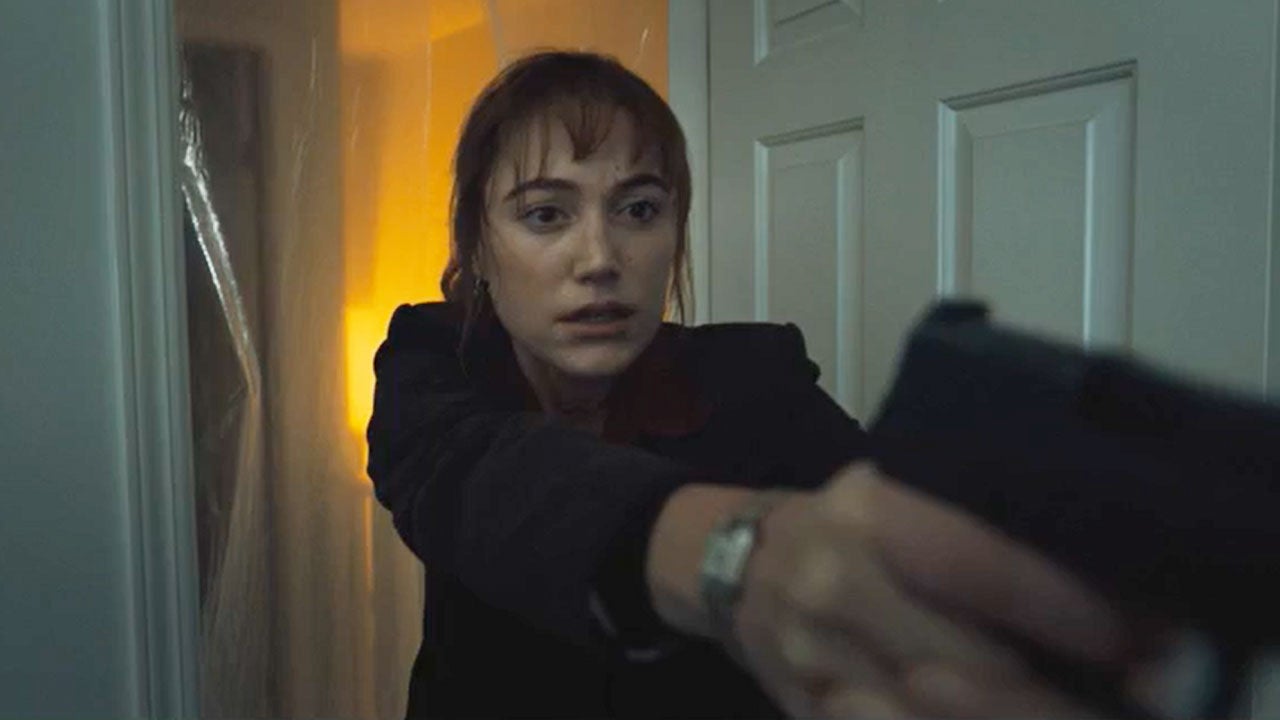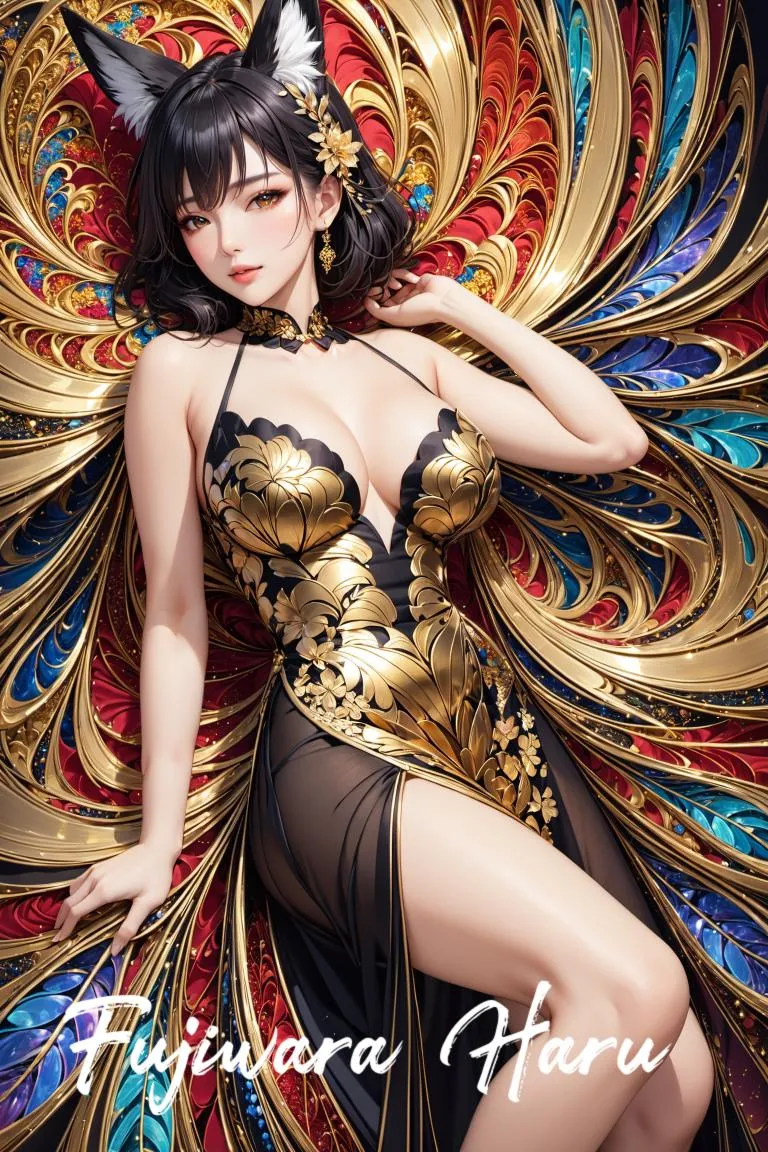The comic book industry is in the throes of a great evolution. Even as more and more comics are adapted into movies, television, and other media, the advent of digital technology means there are more options than ever for both consuming comics and creating them. It’s not all sunshine and rainbows for the industry, but there’s rarely been such an exciting time to be a comic book reader.
At LA Comic-Con, IGN hosted a roundtable with several key comic book creators, including Joëlle Jones (Catwoman), Scott Snyder (Absolute Batman), Marc Silvestri (Witchblade), and Cody Ziglar (Miles Morales: Spider-Man). Together, these creators reflected on the big changes reshaping the industry, the ability of comics to introduce new characters and new ideas, and the question of whether creators are finally starting to earn fair recognition when their work is adapted by Hollywood. Read on to see what they had to say.
On Breaking Into Comics
Who among us hasn’t read a comic book and dreamt of what it would be like to be a writer or artist bringing these stories to life? It’s an idle dream for most, but many fans do take the plunge and try to make it as comic book creators. Whether they succeed is another matter.
We were curious if the panelists felt things have shifted at all in recent years. How tough is it to break into the comics industry? Has the advent of social media and new technology made it easier to break into the industry?
Joëlle Jones: It's hard to break in. I think maybe it's more difficult to stay in. Especially with the Internet, people putting out their online comics and stuff, it's easy to get your content seen, but it's a matter of building relationships, having a work ethic, and being able to keep going before you burn out.
Marc Silvestri: I agree with Joëlle. I don't think it's harder. I think it was harder back in the day. I think you had a lot of more hurdles to go over. You did have to know people, you had to know editors and such. It was nice to have an in. And we have so many more avenues now for people to get into comics and it's not as if comics are publishing a whole lot less. And if you've got what it takes art-wise, writer-wise, just as a creator, you're going to find work because all of us, and I'll speak as someone who's both a creator and a businessperson, we're always looking for talented individuals to work with. So look, it helps to be good at what you're doing. Certainly practice. If you're an artist, I would say come to a show like LA Comic-Con with a portfolio to show to as many professionals as you possibly can.
Appreciate their time. They'll give you some pointers, you take those notes, keep your mouth shut, just nod, say yes and thank you very much. Walk, go home, take those notes and practice. Writers, it’s a little bit more difficult. I think Scott could probably talk to that a little bit more because it's hard. Just throw someone a script and say, look how good I am. But look, there's a lot of ways you can self-publish. Now Todd McFarlane always says famously, if it's not worth a couple of paychecks to you to finance your own comic book, you don't love it enough. And I think everyone here can attest to the fact that your number one ingredient to get into this business at all is you got to damn well be ready to love it. And if you want to make a career out of it, you better love it for the rest of your life. It's not easy, but it is rewarding and we all love it obviously.
Cody Ziglar: It's sort of twofold. There's two steps to this. The platitude is like, it sees it. It's not about how many people see it, it's about who sees it, right? But I met someone randomly in person and we followed each other online and then they like my stuff. And then randomly a couple of months later I got a call being like, “Hey, Marvel wants to meet with you.” I was like, “Why?” And they're like, “I have no idea. Go find out.” And I walk in and I see this person that I met and they're like, “Hey, I know from all your posts about comic books, you're a giant nerd. I also think that you're funny. Would you like to work on this show?”
I got in that way. So what I think is putting your stuff out there is a lot of noise, but I think also we're on our phones constantly. We see so much information and you never know who's going to see that information. You never know who's going to reach out. I think also networking. I think people see it as like, oh, we're going to go schmooze at parties. But really it just means making friends. If you can be a normal person, which the bar is set very low in the comic industry, if you can be a normal person and put your stuff out there, I think that is how you're going to set yourself up for success. At least in my very limited experience.
Scott Snyder: I think what you're hitting on is that it's about honesty. Honestly, I came up at a different era of Twitter, but back then it was easier to sort of be yourself on social media and look for actual social connections with people who liked the same things as you. Now it feels like way more churning and chaos, but what I really find is when it comes to promoting a book on there or it comes to even now trying to find an audience for something that is either really bombastic, like Absolute Batman or something that's really indie, like Book of Evil, it's trying to be honest with your fans or people out there and identify what's special about that book to you and just talk about it sincerely. Be vulnerable online and say, this is why I did this project, this is what it means to me.
Is there anyone else out there that thinks about the same things I do about this? And the more honest you are, as crazy as it sounds, in a world of - How do I get this gimmicky thing? How do I do a challenge that gets everybody? - I honestly think the biggest gimmick is just being very transparent about what you love, about what you're doing and why you think this thing is important to you. And just allowing other people to find it that way and not trying to oversell. When I do a book that's part prose, part whatever, I'm not like, this is Batman. You try not to do that stuff and instead be like this - this is a swing. I don't know if this is something people would like, but I love it.
This is why I credit a lot of my longevity in comics, honestly, for better or worse, to trying to follow advice that Greg Capullo gave me, which is you're employed by whatever company you're working for, but you really work for yourself and your relationship with your fans, your readership. And that doesn't mean you change what you do for them. It means you try and be honest with them about why what you're doing matters to you and allow them in through that. And if you can do that, I feel like you find your audience, whether it's like hundreds of thousands of readers or thousands of readers or hundreds of readers, and you'll have a good career for being sincere with your fan base.
Silvestri: And kind of circling back with that, one thing I think was fantastic, you said you're able to take swings that weren't possible years ago. And now one of the ways that it's so beautiful in comics today is that you have opportunities to have creator ownership, which was rare just a few decades ago and now it's fairly commonplace.
Snyder: Those swings thanks to you and everybody again, huge kudos to you and everybody that blazed that trail for all of us.
Silvestri: Well, the thing about Image Comics is we didn't create creator ownership, but we mainstreamed it and we made it safe. So I think that's a wonderful point that he makes is that he can take swings and that's why we have such a great variety of material out there, horror, which people didn't care about years ago. And you can do that now and you can have intimate small stories, you can have big bombastic stories like Absolute and anything I do, I think it's fantastic.
On Introducing New Ideas
As much as the medium has become synonymous with iconic superheroes like Batman and Spider-Man in the US, comics is a place where new ideas have the potential to flourish. It’s far cheaper and easier to tell a story and create characters in a comic book than it is a movie or TV pilot. We asked the panelists how they reconcile the sheer freedom afforded by the medium with the challenge of appealing to readers who often gravitate toward the comfortable and familiar.
Ziglar: I was just talking with someone about this the other day about how there's sequential storytelling has been around for a while, but I think there are certain cultures that have really glommed onto that. I think if you look at the Japanese market, they have such a diverse roster of types of story you can tell in that. There can be your fighting stuff, your superhero stuff, but then it can be like, oh, I am a guy that works at a car dealership and my mission is just to sell a car. There's so many different types of storytelling.
I think now that that's gotten more popular over here. You can have these small, intimate, almost super-niche, esoteric stories about just, oh, I'm in my town. Nothing exciting happens, I'm just going to the bookstore. I'm doing whatever. But it's a medium where I think it combines this visual storytelling and the storytelling that happens in between the panels, which I think is a very interesting thing that I've had people close to me being like, I don't know how to read a comic book 10 years ago. They just don’t understand how it works. But now I think people are sort of familiar with that storytelling process. I think it also allows it to be more intimate, especially when you bring in stuff like a Tumblr or a DV and art. You can tell so many super-specific types of storytelling that I think this artform allows you to have the breath. You don't have to make a movie, you don't have to make a TV show.
The purest, simplest form is you grab a piece of paper and a pen and you write the story and hopefully people see it, maybe they don't, but you get it out there. I think the barrier for entry is so much lower cost-effective-wise with this storytelling than most other art forms.
Snyder: Again, the joy of doing stuff that's licensed is to be able to tell a personal story through it. You're not on there to be like, how do I phone it in? Or how do I do a Batman story or a Transformers story that's going to sell a lot of copies? You want to do that, of course. But I always feel like the way to do that is, again, to be vulnerable and honest and try and tell a story that you care about the golden rule. I had a great teacher that said the golden rule of the class was always, you’ve got to write the comic that you would love to find on the shelf that day more than any other one. It doesn't matter what it is. And so going in there with that purpose of I am trying to tell a story that makes this stuff exciting to me right now, and comics is ground zero for that.
And I feel like for the last decade we've gone through a lot of changes where there was a lot of interest from TV and film. We've suddenly inherited the Earth where the Marvel Cinematic Universe and everything is. I had to send away to get an articulated Spider-Man doll other than the Secret Wars one when I was a kid. And now you can't throw a rock without hitting Spider-Man, variant number five. Every geeky thing is everywhere. But even with that, there's also, streaming came in and injected a lot of money into the indie world where it was any IP we want. And so I think we're kind of coming out the other side of all of that stuff where it's kind of reminding people that comics isn't reactive to that. Comics isn't the place that reflects that comics is the place that inspires all of that.
And we don't need that stuff. You don't need to have options or equity. I mean, of course, I fight for our rights for all of that. I'm not saying that, I just mean you don't do it for that. You do it to make something new like you're saying, to do a new take on a character that you love. And I think right now, this moment in particular, you see it happening across the board between, Ultimate Spider-Man, Transformers, Ninja Turtles, DC All In, what we're involved in. We're trying to do things that feel inspired by creator-driven ideas, not corporate-driven ideas. And it feels like that moment where it can be not reactive to what's happening in mainstream or corporate culture, but it feels like it's time again to remind them why this is where these characters live their best stories and why they're renewed over and over again.
On How Fans Consume New Comics
Again, there are more options than ever for comic readers to experience new stories. Traditional, monthly print comics now coexist alongside digital providers like Comixology, digital subscription services like Marvel Unlimited and DC Universe Infinite, and a cornucopia of collected edition formats like DC’s new Compact Comics line. How do creators navigate that wealth of options? Doe sit matter how exactly readers are consuming comics, so long as they’re reading?
Jones: I think for me, I try to keep it a lot of that out of my head. If I overthink it, if I'm worried too much about the audience and how they're going to consume it, I can get in my head and get stuck and go into a death spiral. All I'm trying to get across is what is the emotion, what is the story I'm trying to say? And so, therefore, what's the best way to read it?
I think with comics, the great thing about it, no matter how you consume it, is that you get to have a very personal experience, even if it's just like an old floppy, you get to choose how long you linger on the art. You get to choose whether you're going to use your peripheral vision to skip ahead to see what's happening or really let the word sink in. So as long as it feels immediate, personal, and you get the story across in the best format of how you're trying to tell the story, it can be just another tool in a toolbox any artist would use.
Silvestri: I think the noticeable theme here is how comics allows creators to be so personal. And as Scott said, so honest. I've been in this business a long time, and I've been involved in not only comics, but film and television. And Scott, you have too, and I'm sure you can attest to this, but there is no purer way to get your creative vision out like Joëlle was just describing than a comic book. Hundred percent, right? Because there's no one interfering with you because it doesn't cost millions of dollars to make a comic book unless you're really paying some artist who's insane. But it is about the honesty. It is about the passion of getting your story out there.
And I'm an old-school guy, I love paper. I just do. I love the tactile feel of it. And like Joëlle, I also do not think of all the different platforms, all the different technology. I just want to tell my story that means something to me and hopefully resonates with the audience as well. Look, it's a brave new world. I think that it has been pointed out, this is ground zero for all these fantastic ideas. Even if people don't realize it, they go to see their favorite movie, watch their favorite show on streaming. Wherever they get it, they may not even realize where it came from or at least what it was influenced by. And you can see a lot of screenwriters, film, television, oh, that guy reads comic books, that woman reads comic books, right? That writer, gee, where'd you get that idea? I've seen that. I saw that 20 years ago in a comic book. So we are ground zero.
And I think a big part of that is because the risk level compared to other media is very low, which really frees all of us up to just be creatives and however people want to get it, that's up to them. I mean, look, I think it's a little sad because I grew up in a time when you went to, geez, I saw 2001, I was nine years old, a 70-millimeter print, and today people are watching the same thing or whatever on their phones, and I'm going, “Jesus, oh my God, if Kubrick were still alive today, he'd be rolling.” But it is what it is.
And the genie’s been out of the bottle for a long time now. We can't stop that. As long as I can tell my stories, and as long as those stories resonate with an audience, more power to you, however you get it, I'm just happy that you support what we do, and I think that's all we can ever ask for.
Comics Creators and Hollywood Recognition
One of the unfortunate truths of the current comic book movie craze is that the creators of the stories being adapted into blockbuster films and prestige TV shows aren’t getting the full recognition and credit they deserve. It’s a problem that dates back decades, such as when Superman creators Jerry Siegel and Joe Shuster fought with Warner Bros. for fair compensation upon the release of 1978’s Superman movie.
With Spider-Man co-creator Steve Ditko recently being honored as a Disney Legend, it seems as if the tide is slowly shifting. But how much have things changed? Are creators starting to get their fair shake from Hollywood, or is it still a long, uphill battle?
Snyder: I think there definitely could be a lot more, I don't think it's hot water to just be like, yeah, there should be a lot more credit, I think, to people that create the original narratives that wind up in those multi-billion dollar things.
And I think one of the funny things about it is, I remember I went to a panel in New York 10 years ago when Neal Adams got up and was talking about how hard it was to get credit for Jerry Siegel and Joe Shuster and that stuff with Superman and how it's always a fight to give credit to comic creators. And I think the irony of the whole thing is that comic creators aren't looking for some huge payout. They're just looking for what's fair and credit and to be acknowledged, because no one goes into comics to make money. I mean, well, maybe me, maybe me. No. I mean, I remember when I got married and telling my wife, “I'll never make any money, but I love what I do.”
Well, and now I get to work. She took time off. It's a wonderful business for the craziness of it, but nobody goes into it because they think mercenary, like, I'm going onto Wall Street. They go into it for the love of the craft, for the love of the medium. And that's what people want, is acknowledgement that they made something they loved, that they made up. Whether it's anything that winds up in the movies or the TV stuff, nobody's after some huge payday, although they deserve it. I'm just saying people are after the recognition because they took a risk with their life to do something in comics and give up a conventional career because they love this medium and that deserves that recognition. And honestly, it deserves the payday.
So ultimately, I'm a very big believer in, yes, people deserve more credit, they deserve more money, they deserve more because it's where it comes from, ultimately, in this world where it feels like it's getting farther and farther away from creator-driven stuff, where studios and everybody, they are looking to AI and all this crazy stuff to it, really, it comes from people trying to make vulnerable stories. Like every story that you have loved, whether it seems like it's escapist, it's not. It's about somebody telling a story that mattered to them at that moment, whether it's about fatherhood or politics or a space opera about good and evil because they're worried about good and evil in the world. Everybody's telling a story that matters to them. If it hit you, it hit them. And that's not escapism, meaning it doesn't mean that it has to be about one political issue. It means that it matters to the person that told it, and they deserve credit and they deserve compensation for that. So I don't know. That's my feelings on it.
Ziglar: I got nothing else to add because you just laid it out perfectly. Yeah, I mean, people put in work taken from their lives and their experiences and from these seeds, these giant trees grow, and getting recognition for that is the bare minimum. Getting fair pay for that is the absolute bare minimum. To think that I played the video game a couple years back, Guardians of the Galaxy. And in the actual game, they gave credit for the actual suits created by in this issue, this artist, this writer. I was like, oh yeah, that should be the bare minimum for any of this stuff. So I'm not adding anything new. But yeah, more recognition and fair pay seems like the base.
Silvestri: And it was not like that. That's fairly recent history, to be honest with you. And it's still, like Scott said, there's much room for improvement. I think there's a whole generation of filmmakers out there that grew up on comic books and they understand that now they need to pay those respects. Years ago, that wasn't the case. And I speak from experience of walking into a room on a television show because contractually I was allowed to be there. It was written in the contract for good reason. One time I was told by an executive, he said, “Thank you, sir, but this is what we do. Go ahead and draw all your comic books.” And I just looked at this person and said, “That's wonderful, but contractually, I'm supposed to be in this room.”
That was years ago, and it's gotten much better since then. But it is gratifying to see at least efforts to be made that this person had something to do with this wonderful billion-dollar franchise that you are now enjoying. An image was created because we weren't asking for a lot, we weren't asking for everything, but we were told that literally, this is a quote, it's not about the creators, it's about the characters. And the logic. Think about that for a second. Well, who the hell creates your characters? And then the trigger was pulled for Image Comics at that point. That was the damn breaking right there, but it has gotten better.
Snyder: Just as a shout out again, there is no amount of credit that is too much to go to Marc and Rob [Liefeld] and Erik [Larsen] and Jim [Lee] and Todd [McFarlane] and everybody involved with that moment in the ‘90s where I wanted to be a comic artist and my portfolio was filled with copies of their stuff, not just because the comics were awesome, but because it was exciting to see people stand up at that moment when you're young to the Big Two and be like, we're doing our own thing.
And that blazed a trail for all of us to do what we're doing today. So that spirit, I feel is carried forward, but at that moment, it was brand new. Now it's nuanced and all layered about what are the rights to this and that? But that was a very new thing back then. And they deserve credit upon credit upon credit for all of that, because that was a very brave thing to do at a moment when you didn't know how it was going to go and you give up giant salaries to go do your own thing and revolutionize the comic book industry. So you Rob, Jim, Eric, Todd, everybody involved. Thank you for real.
Silvestri: That was super kind of you. Thank you. Appreciate it. We couldn't have done it without the fans, honestly. Fans, they're the ones that allow us - fans above all. Yeah, thanks to the fans. Everyone here at these conventions. Thank you all on behalf of all of us because we couldn't do any of this without you. And the fan response to early Image is what allowed us to screw up so many times, which we did, but we were able to do that. None of us were business people, but thank you. That was very kind of you and no, it's true. 30-plus years later, we're still here. And again, it's the support of creatives like you and the fan base.
Snyder: And their deal. Not to get too in the weeds, but the way that Image is still run to this day has the spirit of that incredibly generous, super indie, go for it, make your thing, we'll give you all the money. It's wonderful. It's wonderful. Not only that it exists, but it's thriving and you see it working with people, all these creators gravitating towards it, James Tynion and young people, new people, and also people that are established like Mark Millar, and it's wonderful to see.
Jones: This is what it's about. It's a conversation. It actually speaks to my point that I think Scott spoke so beautifully about. I have nothing else to add except that what is lovely is that sometimes the idea that the creators aren't given their due, they are within the industry. We know where we came from and how we got where we are. And I've been lucky in the industry that I've gotten a lot of support from people that have come before me, people coming in, and we know where it comes from and we support each other, so at least that helps.
On Their Foundational Comics
We closed out the panel by asking the creators about their favorite comics. Not just the ones that influenced them most, but the ones they loved so much as readers that they wished they could have been a part of the creative team themselves.
Ziglar: Invincible. I remember reading that when it came out. I was like, this is so good. I don't want to read anything else. And I was so upset how it got everything I wanted in a Spider-Man story, but with a weird Superman and these father/family issues. This found-family, and the art style was amazing. The coloring was fantastic. The storytelling was great. And for me, it was the first comic I read where the ending was like, oh, wow, this is the most powerful, poignant ending I've ever read in the series. Just that whole coda was perfect. And I remember finishing it being like, I'm mad because I'm never going to write anything this good, and I'm mad that it had no part in this whatsoever. Scott, what about you?
Snyder: That's the best feeling where you're like, I can never achieve this, and yet I'm the obvious one. I was nine when Dark Knight Returns came out. I grew up in New York City, and it touched on all my fears of the Cold War being blown up by a nuclear weapon and nobody being able to help. And that book for me at that age showed me that Batman could be real and vulnerable and also triumphant. So it was transformative. I knew I wanted to do something in storytelling, but that was the one that was like, I want to be a writer/artist. I'm not good enough at art to be able to do it all the way through college. I had a portfolio, but that book changed my life.
But no, that book, it made me realize that these heroes can have not only impact in a general way, but be so about that moment and make you brave in the face of your fears. I mean, that was special to me, Marc.
Silvestri: Not to copy you, man, but Frank Miller on that book, I was a little older than you back then, but that was such a seminal moment in comics and so transformative, and it literally changed the comics industry. It changed the direction of comics. People suddenly started seeing comics as something as serious as actual literature, and I think that's where a lot of other media who grew up reading comics felt the turn as well. That's the kind of movies they wanted to make. They didn't get there yet. It would take a while, but in their minds, I think like you saying that I wanted to be a comic artist. Oh, those, I would love to make this type of movie. It was so cinematic, which was not something you saw back then, and it was such a clear, singular vision by someone who had a story to tell, and he wasn't going to let anyone tell him to say it differently. You could just sense the power, not only of the character of Batman, but the creative force behind it. And it was so empowering and so inspiring. That is the moment that for me, and I was already in comics for a little bit.
Jones: I think it happens to me on a daily basis where I see a comic book that I fall in love with and my voice has been bigger than my stomach, and I want to do this genre, and I want to do this and try this. It's really exciting. I grew up reading comics in the ‘80s and ‘90s, so I consumed a lot of amazing comic books. I think the one that really struck me the most, Chris Bachalo, I think was a huge big deal to me. And reading his work and just how bonkers and far you can take it, and just to keep going without limitations. I don't even care if you can read it. Just enjoy what I'm doing. Yeah, and it still happens every day.
For more on these creators, find how how Snyder and artist Nick Dragotta transformed the Dark Knight in Absolute Batman #1, and see Ziglar reflect on Miles Morales' 300th issue.
Jesse is a mild-mannered staff writer for IGN. Allow him to lend a machete to your intellectual thicket by following @jschedeen on Twitter.
